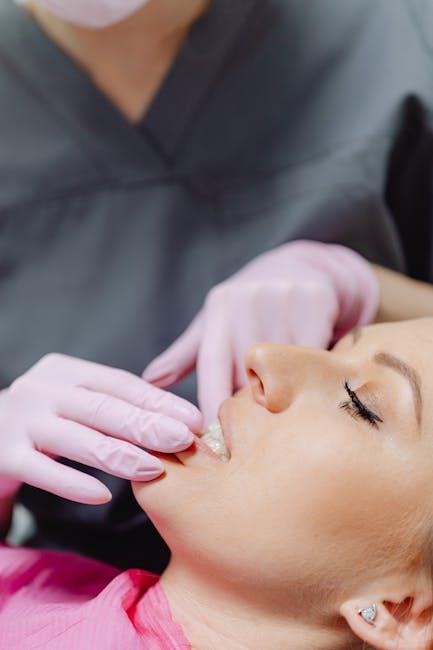
When to Make an Emergency Dental Visit – US News Health
Oral health plays a crucial role in your overall well-being, but dental problems can strike unexpectedly. Knowing when to make an emergency dental visit can save your teeth, reduce pain, and prevent complications. In this comprehensive guide, we explore the key signs and symptoms that warrant urgent dental care, the benefits of timely intervention, and practical tips to manage dental emergencies before you see a professional.
Understanding What Constitutes an Emergency Dental Visit
Not every dental discomfort is an emergency, but some situations require immediate attention to avoid severe damage or infection. Dental emergencies typically involve pain, trauma, or conditions that could worsen quickly.
Common Types of Dental Emergencies
- Severe toothache or pain that disrupts daily life
- Knocked-out tooth (avulsed tooth)
- Chipped, cracked, or broken tooth causing pain or bleeding
- Uncontrolled bleeding in the mouth
- Loose or displaced teeth after an accident
- Swelling of the gums, face, or jaw
- Abscess or infection causing fever and pain
- Lost or damaged dental restorations (crowns, fillings, implants)
- Trauma to the jaw resulting in difficulty opening or closing the mouth
Signs You Should Seek Emergency Dental Care Immediately
Recognizing urgent symptoms can help you act swiftly. If you experience any of the following, do not delay in seeing an emergency dentist:
- Excruciating tooth pain: Intense, persistent pain that isn’t relieved by over-the-counter medication.
- Visible tooth fracture or loss: A tooth that is visibly broken, chipped deep enough to expose the nerve, or completely knocked out.
- Excessive bleeding: Blood that won’t stop after applying pressure for 10–15 minutes.
- Severe swelling: Swelling of the face or jaw that affects breathing or swallowing.
- Signs of infection: Fever, pus drainage, and swelling around a tooth or gums.
- Trauma to the mouth or jaw: Injury causing difficulty in movement, numbness, or misaligned jaw.
Emergency Dental Visit Benefits
Prompt dental care can make a significant difference. Here are a few key benefits of seeking emergency dental care:
- Pain relief: Emergency dentists can provide fast and effective pain management, restoring comfort quickly.
- Prevent further damage: Immediate care helps protect teeth and gums from worsening problems.
- Avoid infections: Early treatment of infections can prevent complications such as abscesses or systemic infection.
- Improve outcome: Quick response increases the likelihood of saving teeth that are injured or knocked out.
- Peace of mind: Knowing that you are managing a serious condition effectively reduces anxiety.
Practical Tips for Managing Dental Emergencies Before Visiting the Dentist
While waiting to see an emergency dentist, these tips can help you manage symptoms and protect your oral health:
- Toothache: Rinse your mouth with warm salt water; use over-the-counter pain medication; avoid very hot or cold foods.
- Knocked-out tooth: Retrieve the tooth by the crown (not the root), rinse gently with water, and try to reinsert if possible or store in milk or saliva.
- Broken/chipped tooth: Save any pieces and rinse the mouth; use cold compresses to reduce swelling.
- Bleeding: Apply gentle pressure with sterile gauze or clean cloth until bleeding stops.
- Swelling: Use a cold compress on your face to reduce swelling and take anti-inflammatory medication if appropriate.
Case Studies: Real-life Emergency Dental Situations
| Case | Situation | Emergency Action | Outcome |
|---|---|---|---|
| 1 | Knocked-out tooth during soccer game | Stored tooth in milk and went to ER within 30 minutes | Tooth successfully replanted and healing |
| 2 | Severe toothache with swelling and fever | Called emergency dentist, received antibiotics and root canal therapy | Infection resolved, tooth saved |
| 3 | Broken front tooth from slip and fall | Used cold compress and emergency dental visit same day | Dental bonding restored appearance and function |
When Not to Rush to the Emergency Dentist
It’s equally important to know which situations do not require immediate emergency dental visits. For instance, mild sensitivity to hot or cold foods, minor tooth staining, or routine checkups do not require urgent care. Scheduling a regular dental appointment is the best approach for these cases.
How to Find an Emergency Dentist Near You
In the United States, many dental practices offer after-hours emergency services. You can use online directories, your usual dentist’s emergency line, or local hospital referrals to find a trusted emergency dentist. When calling, have clear information about your symptoms and any relevant medical history to speed up the process.
Key Search Terms to Use:
- Emergency dentist near me
- 24 hour emergency dental care
- Urgent dental care services
- Same day dental appointment
Conclusion
Dental emergencies can be frightening and painful, but knowing when to make an emergency dental visit can safeguard your oral health and overall wellness. Severe pain, trauma, uncontrolled bleeding, and signs of infection are clear indicators that you need prompt professional care. Acting quickly and following practical tips can minimize damage and improve outcomes. Remember, for any serious dental issue, seeking urgent care is the best choice to protect your smile and health.
Stay informed, prepared, and do not hesitate to contact an emergency dentist when necessary — your teeth will thank you!


